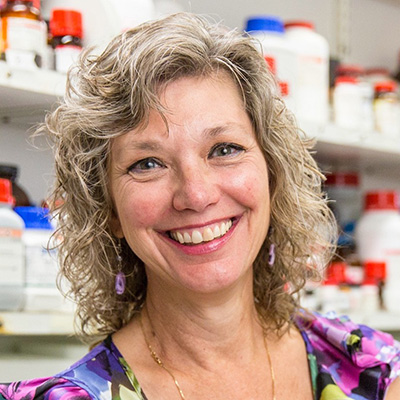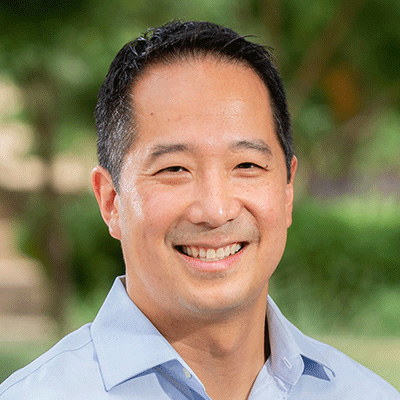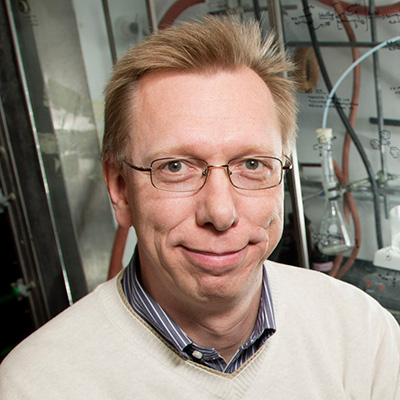Orth, Tu, van der Donk receive HHMI pathogen awards
The Howard Hughes Medical Institute has announced that American Society for Biochemistry and Molecular Biology members Kim Orth, Wilfred van der Donk and Benjamin Tu are among the 70 researchers who will receive awards as part of the HHMI’s Emerging Pathogens Initiative. These awards fund research to prepare for infectious diseases that could threaten human health.



Orth will receive $7 million over three years to work with a team of four assistant professors to identify fast-evolving virulence factors from clinically relevant pathogens. Tu and his team will receive $9.5 million over three years to research natural products that could be used to fight emerging pathogens. van der Donk and his team will receive $9.5 million over three years to research the avian and human antibody response to emerging influenza viruses.
Orth is a professor of molecular biology and biochemistry at the University of Texas Southwestern Medical Center. Her lab focuses on the basic biochemical mechanisms that underlie bacterial infections with a focus on how bacteria such as Vibrio parahaemolyticus hijack and deregulate cellular signaling. Orth was elected to the National Academy of Sciences in 2020. She is an ASBMB fellow and won the 2019 ASBMB-Merck Award and the society’s 2012 Young Investigator Award.
Tu is a professor of biochemistry at UT Southwestern. His lab investigates how cellular processes such as cell growth and division, transcription, translation, mitochondrial homeostasis and autophagy coordinate the metabolic state of the cell. He was recently awarded the Edith and Peter O’Donnell Award by the Texas Academy of Medicine, Engineering Science & Technology. Tu is a co-chair of the 2024 ASBMB annual meeting, Discover BMB, to be held in San Antonio.
van der Donk is a professor of chemistry at the University of Illinois Urbana-Champaign. His lab uses synthetic organic chemistry and molecular biology to study enzymatic transformations with implications for the environment and pharmaceuticals. van der Donk was recently elected to the National Academy of Sciences. He served as a co-chair of the 2018 ASBMB annual meeting.
HHMI is committing $100 million to this initiative to support basic research targeted at preparedness for emerging pathogens.
“With this program, we hope to gain some of the knowledge and tools we need to get a scientific head start on future epidemics.” HHMI Vice President and Chief Scientific Officer Leslie Vosshall said in a press release.
Enjoy reading ASBMB Today?
Become a member to receive the print edition four times a year and the digital edition monthly.
Learn moreGet the latest from ASBMB Today
Enter your email address, and we’ll send you a weekly email with recent articles, interviews and more.
Latest in People
People highlights or most popular articles

From humble beginnings to unlocking lysosomal secrets
Monther Abu–Remaileh will receive the ASBMB’s 2026 Walter A. Shaw Young Investigator Award in Lipid Research at the ASBMB Annual Meeting, March 7-10 in Washington, D.C.

Chemistry meets biology to thwart parasites
Margaret Phillips will receive the Alice and C. C. Wang Award in Molecular Parasitology at the ASBMB Annual Meeting, March 7-10 in Washington, D.C.

ASBMB announces 2026 JBC/Tabor awardees
The seven awardees are first authors of outstanding papers published in 2025 in the Journal of Biological Chemistry.

Decoding how bacteria flip host’s molecular switches
Kim Orth will receive the Earl and Thressa Stadtman Distinguished Scientists Award at the ASBMB Annual Meeting, March 7–10, just outside of Washington, D.C.

Thiam elected to EMBO
He was recognized during the EMBO Members’ Meeting in Heidelberg, Germany, in October.

The timekeepers of proteostasis
Learn about the cover of the winter 2026 ASBMB Today issue, illustrated by ASBMB member Megan Mitchem.
